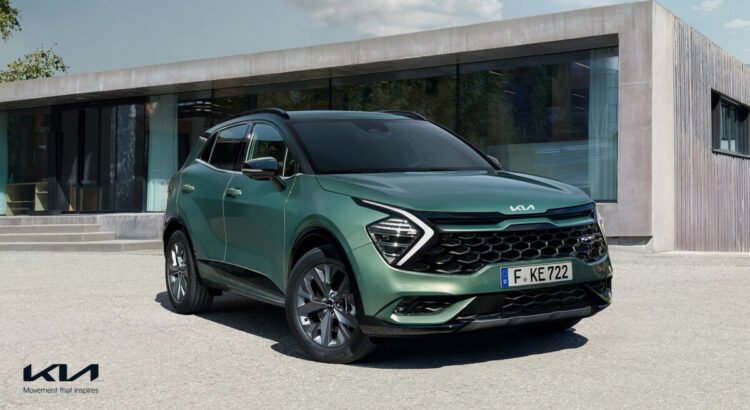2022 Kia Sportage Makes Euro Debut With Familiar Look, Shorter Wheelbase

In June this year, the global version of the new Kia Sportage made its official online debut showing quirky design touches and available customization options. Now, almost three months later, the Korean crossover makes its European premiere, just a few days ahead of a public appearance scheduled for the 2021 IAA in Munich next week.
If it looks familiar yet somewhat different than the global model, there’s an explanation for that. First, the official press photos attached in the gallery below depict a sportier-looking GT Line trim level with a distinctive front fascia design. The radiator grille, for example, has a hexagonal pattern, while the lower part of the bumper has a different layout and a new position for the adaptive cruise control radar.
Most notably, though, the European Sportage is shorter than the model for the rest of the world. Under a closer inspection, you may notice the shorter rear doors and the smaller rear quarter panel that lacks a window. This is necessary due to the shorter wheelbase which for the Old continent will be 2,680 millimeters (105.51 inches) versus 2,755 mm (108.4 in) for the global model. The overall length of the crossover for Europe is 4,515 mm (177,75 in), making it 145 mm (5.7 in) shorter than the Sportage we saw three months ago.
Other than that, the whole picture should look quite familiar to you, especially inside the cabin where the two-screen layout carries over without any changes. The GT Line trim brings several cool tweaks, though, including a flat-bottom, multifunction steering wheel, carbon fiber decorations on the dashboard, and special leather upholstery with white stitching and embroidered GT Line lettering.
As far as the oily bits are concerned, Kia will sell the Euro-spec Sportage, which it describes as the “first European-specific version of Sportage in the model’s esteemed 28-year history,” with a choice of hybrid, plug-in hybrid, gasoline, and diesel engines. Regardless of what you pick, all versions will be equipped as standard with a start-stop system in cooperation with Kia’s ADAS technology, which looks ahead to determine if and when the system should be activated such as when the vehicle is approaching a stop sign or junction.
